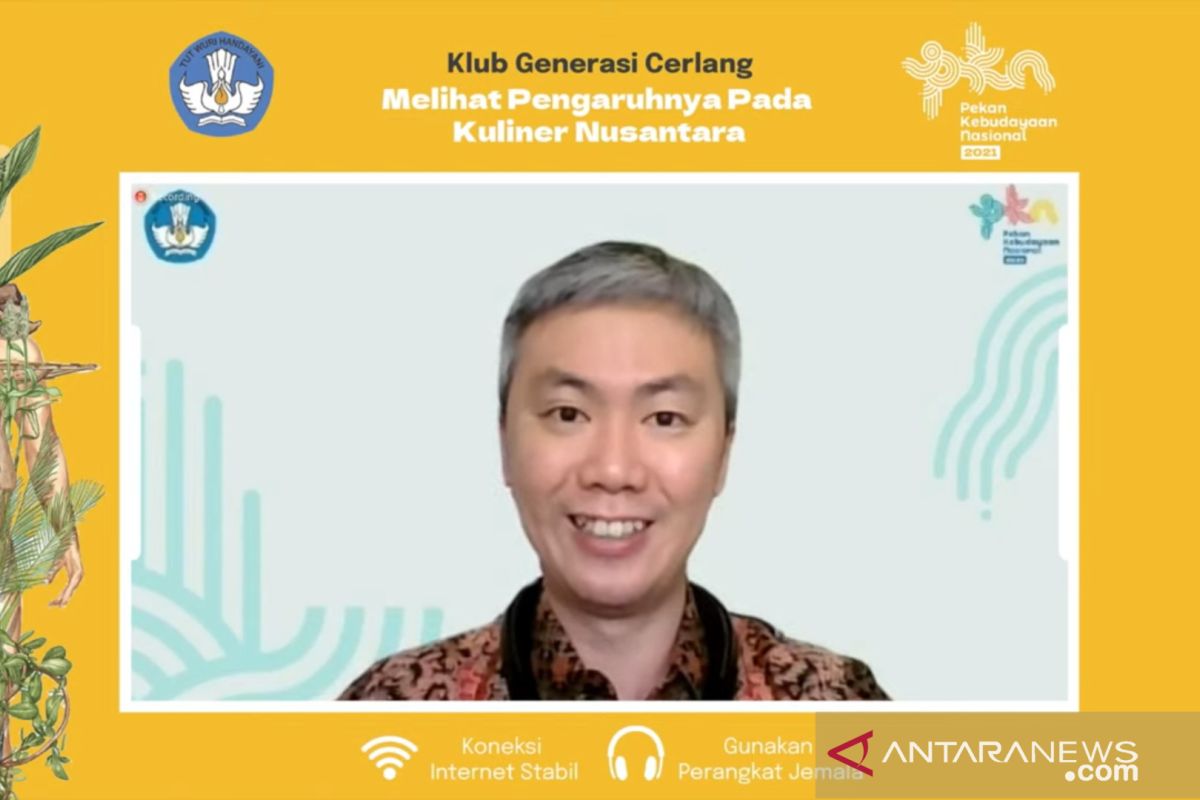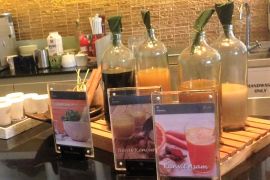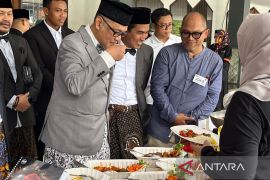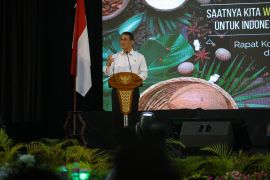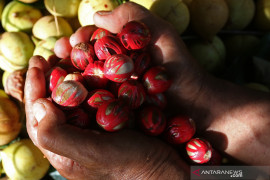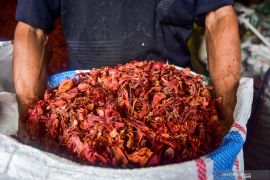It is time we should introduce traditional spices to vocational and tourism studies students and professional chefsJakarta (ANTARA) - Indonesia's industry of jamu -- traditional herbal medicinal drink -- is on the brink of a crisis amid spice farmers switching to tea or coffee crops perceived as more promising, a jamu industry entrepreneur stated.
"Farmer initially growing spices have begun to divert to coffee and tea crops. If this situation continues, I am afraid our spices will become more popular abroad instead," Acaraki artisanal jamu bar founder Jony Yuwono stated during an online seminar on Indonesian jamu, here on Tuesday.
Yuwono believes the mass diversion is partly spurred by the stable demand for tea or coffee as compared to spices, thus holding greater promise for the farmers.
"Tea or coffee farmers often categorize the quality of their crops and sell the grouped crops at different prices, thereby ensuring more income for the farmers regardless of the quality of their crops. Spice farmers seldom do the same, and their crops of differing quality would be priced the same," Yuwono stated in connection with the factors causal to the prices of spices being lower than those of coffee or tea.
Citing the Health Ministry's research on herbal medicine conducted in 2012, Yuwono noted that Indonesia currently had 15,773 jamu recipes from 1,068 ethnic groups nationwide.
Related news: Indonesian herbal medicine to be marketed abroad
"We know that our country currently also has more than 30 thousand potential herbal medicines to cure various diseases. Our duty is to preserve the herbal medicine tradition," he stated.
Highlighting another research on herbal medicine practitioners conducted in 2015, Yuwono stated that some 49.5 percent of the total practitioners were above 60 years of age, with a bare one-third of them having a successor.
"If the practitioner retired or died, who will carry forward their jamu tradition? If no one continues the tradition, how will the recipe survive? If the recipe does not survive, how about the herbal plants' cultivation?" the Acaraki founder expounded.
At the same seminar, culinary expert William Wongso emphasized the importance of introducing the jamu tradition and traditional spices to Indonesian youth to ensure continuance of the jamu tradition.
Related news: Indonesia promoting medicinal herbs tonic scientifically
"It is time we should introduce traditional spices to vocational and tourism studies students and professional chefs. They should be taught not only how pepper or nutmeg looks, but they should also know how the spices are cultivated and how to pick the best quality," Wongso emphasized.
Wongso noted that traditional spices are a unique identity of Indonesia, as different spices contributed to the diverse array of foods and traditional identities on Indonesia's islands, also known by its epithet "spices island."
"They should know various spices and their recipes. They should also know that spices differ from island to island," the culinary expert stated.
Related news: Legislator reminds public to stay alert amid pandemic
Related news: Indonesia-Japan cooperation to remain strong: Hartarto
Translator: Hreeloita DS, Nabil Ihsan
Editor: Fardah Assegaf
Copyright © ANTARA 2021
